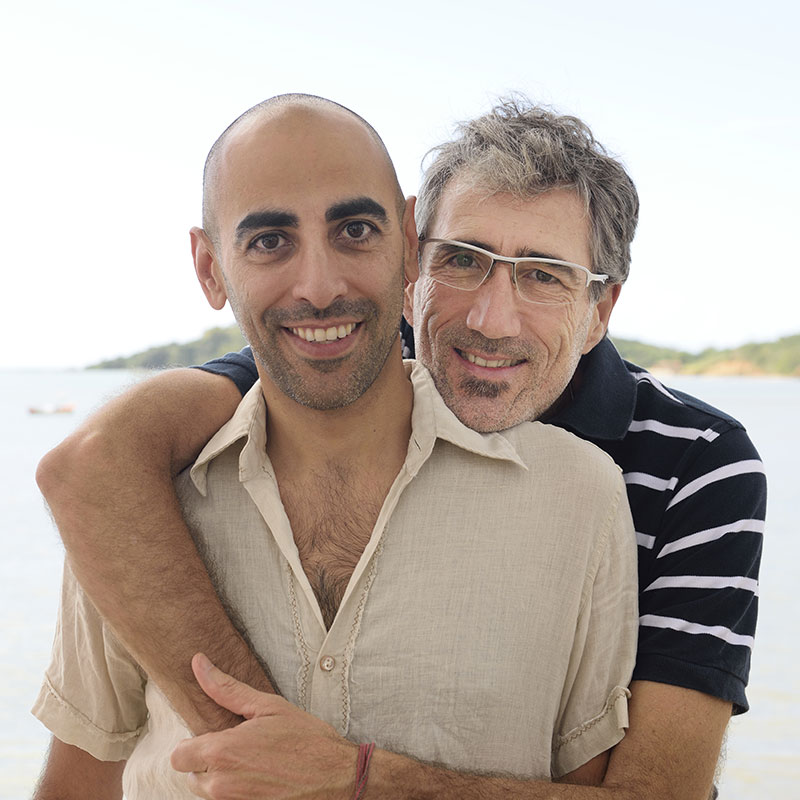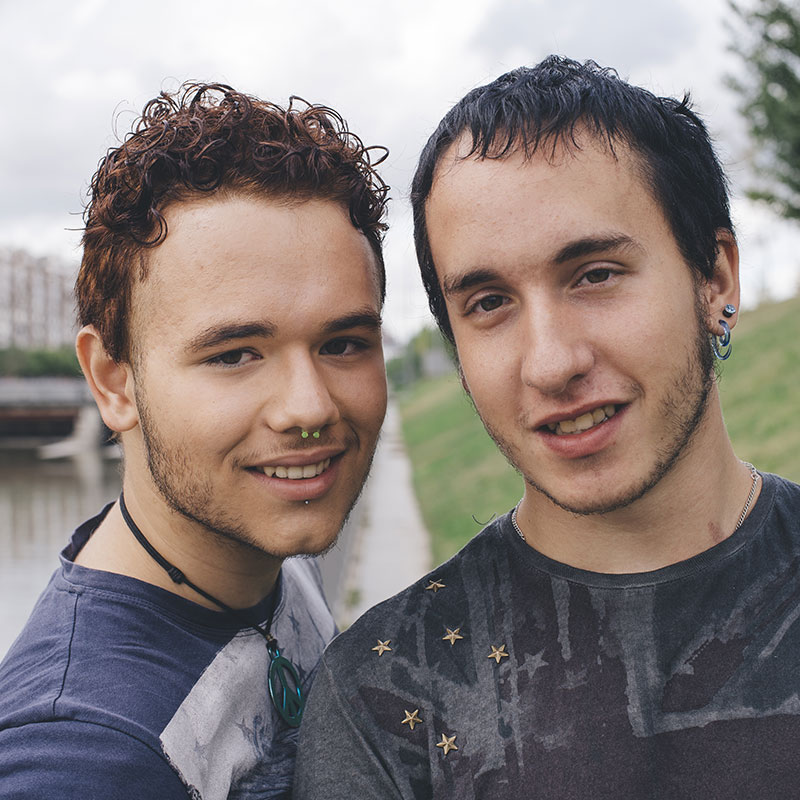
Peter and Harry
Harry and Peter are taking time to adjust to what they feel is safe sexual practice for them.
Harry: When we first met, we would only have sex with condoms. But in a long-term relationship it gets to be a drag. Recently I’ve started taking PrEP, so we no longer have to use condoms. PrEP is like an invisible safety net. Although adjusting our idea of what’s safe has taken some time.
Peter: I have never thought about not wearing condoms because I was so clear about what the diagnosis meant to my sexual practice. I didn’t realise I was afraid of not wearing condoms.
Harry: Also, because his viral load is undetectable the risk of transmission is very low.
Peter: We don’t think PrEP replaces condoms; it’s an addition. In our relationship it doesn’t change things.
Harry: We’re still working it out, really.
Peter: Before Harry was on PrEP there was fear and anxiety and a sense of wrongdoing about sex without condoms. That has changed. It’s made sex more enjoyable.








